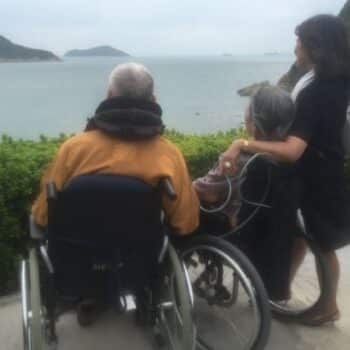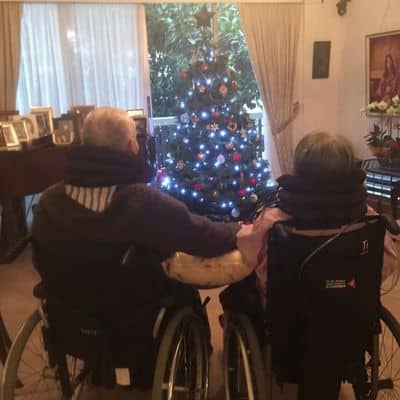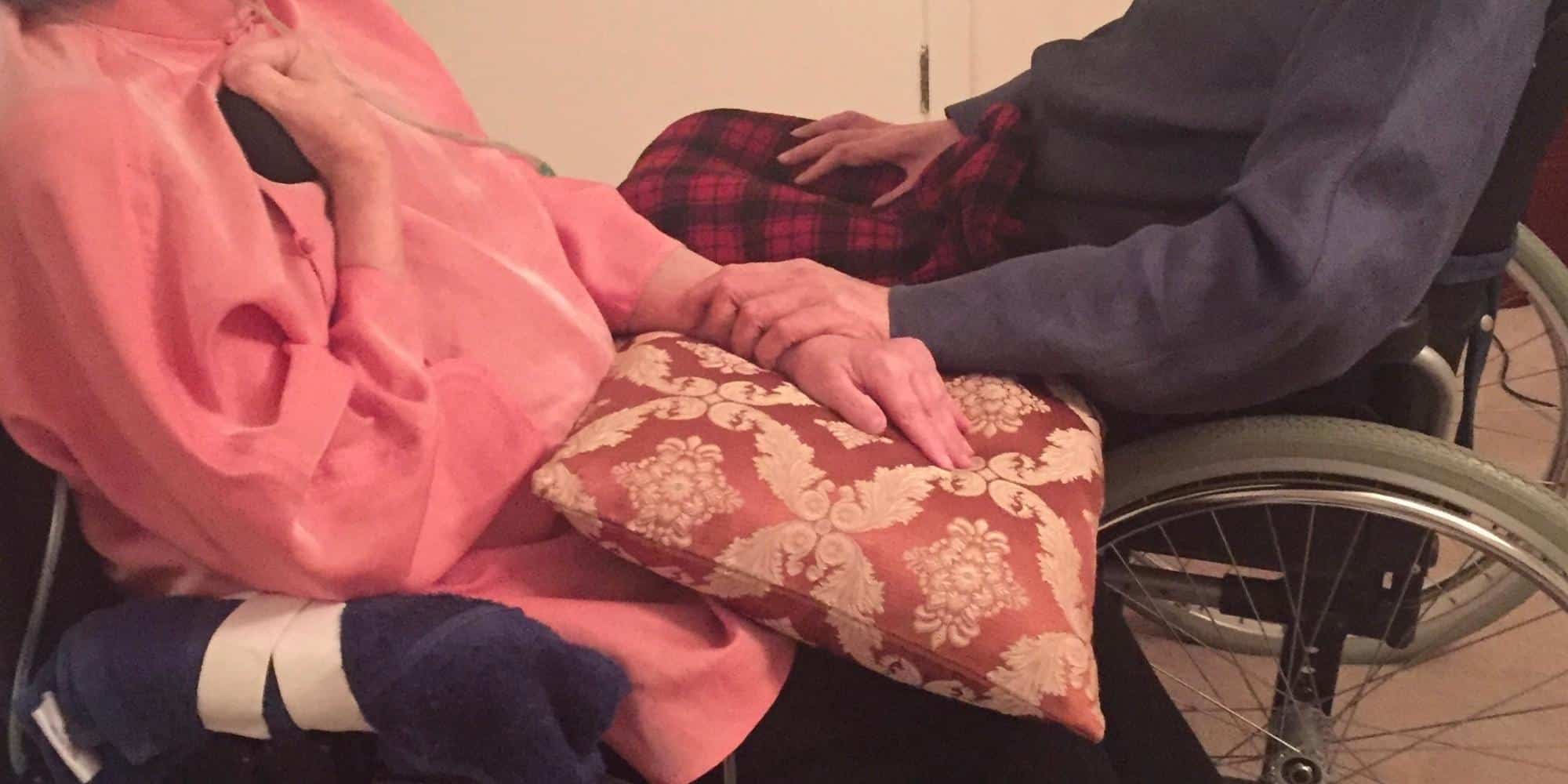Mum, Don’t Be Scared

This is what I gave to my mother, because I believed she was inside her Alzheimer’s shell, somewhere.
April 28, 2025
Dominica Yang lives in Hong Kong. Her mother was diagnosed with Alzheimer’s at the age of 83 and died four and a half years later. Yang’s book, My Mum Called Alzheimer’s, captures conversations Yang had with her mother while caring for her.
One day when I visited my mother, she grabbed by arm and squeezed tight, she pulled me towards her and said in my ear:
White
I only see White
I am so scared
Help me
My mother’s symptoms came quite suddenly and dramatically. There was little warning, and I had zero experience. She became religiously obsessed with little details, got confused, and became frustrated and anxious. She used to be the calmest, gentlest and kindest person. She became agitated, violent and difficult. I learnt to be patient, to be her stability, her reality, her link to her ‘old’ world.
I tried to see her every day for the routine which calmed her. She needed familiarity. She needed a peaceful, comfortable environment. Any unknown, unfamiliarity, surprise or concern would bring on stress. I wanted her to feel she was fine, and there was nothing to worry about. I assured her that ALL would be taken care of. I planned her daily routines and activities.
I made sure she had nothing to worry about.
I tried to be ahead of the game: I would tell her about things that were going to happen, e.g. what my father was going to eat for lunch, whom I would be seeing that week, news of her loved ones. I played her favorite music. I left little opportunity for her to feel doubt, uncertain or inadequate. If she started feeling anything negative, I immediately changed the subject and diverted her to something cheerful or something she cared about.
There were good days….
… and there were bad days.
I treasured the good days and soaked in the joy and rapport which would later become a loving memory for keeps.
I learned from the bad days when nothing was right, and she felt agitated, lost or alone. But I did not give up, I let her know we were there, I touched her, I talked to her, I embraced her with the comfort of a familiar voice, smell, and touch.

I never disagreed with her. I always agreed. If she did not make sense, I pretended I knew.
I already dressed her up for all occasions. I would tell her what she was wearing, let her feel the fabric. I would show her in the mirror, or I would take photos to show how good she looked — a special scarf or handbag, something familiar.. even better if there was an old family story to it.
My mother did not always respond, acknowledge, or react. I always acted as if she heard, she knew, or she reacted. Even the remotest chance of her feeling any of it would be a bonus and a victory point for the day!
I wanted my mother to feel loved and NOT alone. I was always very physical and vocal with my interaction with her.
This is what I gave to my mother, because I believed she was inside her Alzheimer’s shell, somewhere. And in turn, my mother gave to me.

In time, my mother became my stability in certain ways. She was always there — yes and no — but she was always there. I too took comfort in the familiarity of her routine, some habits, and the challenges. I too became accustomed to — and relied on — those routines.
Overcoming daily challenges became little brownie points and victories.
I saw how I grew as I learned to deal with the daily situations, new symptoms, and inexplicable issues. Even towards her last few months, as she became withdrawn, less alert and less engaging in every way, I never stopped talking to her, touching her, being present with her. I wanted her to smell, feel and hear me. I took comfort in her presence, too.
‘Mum, I am here. I know you are there.’
My mother was diagnosed with Alzheimer’s at the age of 83. She died four and a half years after. The deterioration was fast, yet there were some reversible symptoms. Her case was atypical of usual Alzheimer’s and dementia conditions.